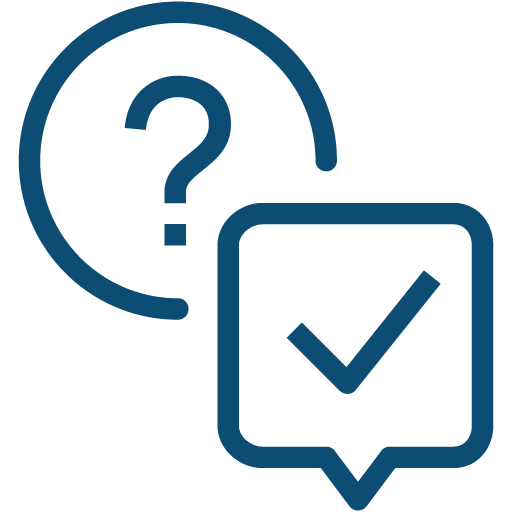Frequently Asked Questions
1. What is the purpose of implementing the Hospital Authority Drug Formulary?
The Hospital Authority (HA) has implemented its Drug Formulary since July 2005 with a view to ensuring equitable access by patients to cost effective drugs of proven safety and efficacy through standardisation of drug policy and drug utilisation in all public hospitals and clinics. The HA Drug Formulary is continually updated with regular evaluation of new drugs and review of the prevailing drug list under the established mechanisms.
2. What are the guiding principles of developing the HA Drug Formulary?
The development of the HA Drug Formulary was based on the guiding principle that public resources should be used to maximise the effects of healthcare and provide equitable access for all patients. Other core values, including evidence-based medical practice, rational use of public resources, targeted subsidy, opportunity cost considerations and facilitation of patients’ choice, have also underpinned the development of the HA Drug Formulary.
3. How are drugs categorised in the HA Drug Formulary?
At present, there are four drug categories in the HA Drug Formulary namely General drugs, Special drugs, Self-financed Items with safety net coverage and Self-financed Items without safety net coverage.
4. What are General drugs?
General drugs are with well-established indications and cost-effectiveness which are available for general use as indicated by patients with relevant clinical indications and provided at standard fees and charges in public hospitals and clinics.
5. What are Special drugs?
Special drugs are used under specific clinical conditions with specific specialist authorisation. These drugs are provided at standard fees and charges (please click here) in public hospitals and clinics when prescribed under specific clinical conditions. Patients who do not meet the specified clinical conditions but choose to use Special drugs are required to pay for the drugs.
6. What are Self-financed Items with safety net coverage?
Self-financed Items (SFIs) with safety net coverage are drugs which are proven to be of significant clinical benefits but are very expensive for HA to provide as part of its standard services. These drugs are not covered by the standard fees and charges in public hospitals and clinics. Patients who require these drugs and can afford the costs have to purchase the drugs at their own expense. A safety net is however provided, like the Samaritan Fund and the Community Care Fund Medical Assistance Programme, to subsidise the drug expenses of patients who have financial difficulties.
7. What are Self-financed Items without safety net coverage?
SFIs without safety net coverage include drugs with preliminary medical evidence only, drugs with marginal benefits over available alternatives but at significant higher costs, and lifestyle drugs (e.g. anti-obesity drugs). These drugs are not provided as part of the standard services of HA nor covered by the standard fees and charges in public hospitals and clinics. Patients who choose to use these drugs must purchase them at their own expense.
8. Are all General drugs provided for free to patients?
Except for non-entitled persons and private patients, all public hospitals and clinics would provide General drugs on the HA Drug Formulary to patients at standard fees and charges.
9. Why do some patients use Special drugs at their own expense?
Special drugs are prescribed under specific clinical conditions with specific specialist authorisation and are provided at standard fees and charges under these circumstances. However, for patients who do not meet the specified clinical conditions but choose to use Special drugs, doctors would prescribe relevant drugs according to patients’ clinical conditions and patients have to pay for the drugs.
10. Would HA pharmacies supply Self-financed drugs to patients?
As a publicly-funded healthcare provider, HA does not supply drugs as a retailer. Patients should in general purchase self-financed drugs from any of the registered community pharmacies in Hong Kong. However, three categories of self-financed drugs are available for purchase by patients at HA pharmacy departments, including (1) drugs covered by the safety net, (2) very specialised drugs not readily available at community pharmacies and (3) drugs for meeting operational needs (e.g. injections). The list of Self-financed drugs available for purchase by patients at HA pharmacy departments is accessible at the HA internet website and updated from time to time for public reference.
11. How much do patients need to pay for use of Self-financed drugs?
Prescribed self-financed drugs are charged at cost plus an administrative charge per drug item dispensed (please click here), irrespective of public and private patients.
12. Are all registered drugs in Hong Kong listed on the HA Drug Formulary?
As HA is a publicly-funded healthcare service provider, the coverage of its Drug Formulary should be driven by clinical service needs. Therefore, registered drugs in Hong Kong are not automatically listed on the HA Drug Formulary. HA would regularly appraise new drug applications submitted by public hospital doctors or pharmaceutical companies under the established mechanisms. Endorsed new drugs and indications would be included in the HA Drug Formulary.
13. Which factors does HA consider in evaluating new drugs?
HA follows an evidence-based approach in evaluating new drug applications for listing on its Drug Formulary, having regard to the three principal considerations of safety, efficacy and cost-effectiveness while taking into account other relevant factors, including international recommendations and practices, advance in technology, disease state, patient compliance, quality of life, actual experience in the use of drugs as well as views of professionals and patient groups.
14. Can drugs not registered in Hong Kong be listed on the HA Drug Formulary?
No, except for unregistered drugs that are essential for corporate clinical needs. Unregistered drugs which are stocked by individual hospitals as special temporary items are not listed in the HA Drug Formulary.
15. If a drug is listed on the HA Drug Formulary, does it mean that all of its clinical indications are also listed?
Drugs may have more than one clinical indication and HA would consider each of the registered clinical indications for listing on its Drug Formulary under the established mechanism. Thus, drugs may not have all of their registered clinical indications listed on the Drug Formulary.
16. How does HA ensure that patients have appropriate drug treatments?
There are currently around 1,300 drugs in the HA Drug Formulary. They have all undergone prudent, objective and evidence-based evaluations before listing on the Drug Formulary. Obsolete drugs or those no longer required or used would be removed from the Drug Formulary while the clinical indications of certain drugs may be revised as appropriate. Existing drugs in the Drug Formulary may also be repositioned among categories in the light of the latest scientific evidence on safety, efficacy, cost-effectiveness and other relevant factors. Through regular review of the Drug Formulary, HA ensures that patients would have appropriate drug treatments prescribed according to their clinical conditions.
17. Are all drugs in the HA Drug Formulary available at all public hospitals and outpatient clinics?
Public hospitals and outpatient clinics differ in their scope of service to cater for the clinical needs of the local district and provide appropriate coverage within the cluster, such that certain hospitals or outpatient clinics may provide specific services only. Different hospitals and outpatient clinics would therefore stock different drugs on the HA Drug Formulary according to their respective service needs.
18. Would HA consider providing all drugs prescribed by doctors to patients at standard fees and charges without requiring them to bear the full cost of drugs?
With the advancement in medical technologies, many new drugs are introduced to the pharmaceutical market every year. However, these drugs differ widely in cost, therapeutic effectiveness, side effects and health outcomes. It is imperative for HA, as a publicly-funded organisation, to ensure rational use of limited resources in order to provide adequate medical care and optimise the health benefits for the society. Currently, there are about 1,300 drugs in the HA Drug Formulary, including many costly drugs that are provided at standard fees and charges for treatment of different acute and chronic illnesses. Public hospital doctors would prescribe appropriate drug treatments for patients according to their clinical conditions and relevant operation guidelines. HA would also keep on reviewing its Drug Formulary in order to ensure rational use of limited public resources to maximise the health benefits for patients.
19. How does HA assist patients who require the use of expensive drugs but have financial difficulties (e.g. cancer drugs)?
Being the major healthcare services provider in Hong Kong, HA places high importance to provide optimal care for all patients and ensure equitable access and rational use of public resources. HA well understands the financial burden of expensive drug treatments on patients and their family, and has provided a safety net, like the Samaritan Fund and the Community Care Fund Medical Assistance Programme, to subsidise eligible patients to use expensive drugs that are proven to be of significant clinical benefits but extremely expensive to be provided as part of HA’s standard services.
20. How can patient groups obtain information about new drug introduction to the HA Drug Formulary?
Patient groups are notified through email of the meeting agenda and the list of new drugs put up for review before the Drug Advisory Committee meetings. The review outcomes (including the primary reason for rejection) for each of the new drug applications would also be disseminated to the patient groups after the Drug Advisory Committee meetings. Moreover, the HA Drug Formulary would be regularly updated and made available to the general public for information.
21. Are there any channels through which patient groups can provide feedback on the HA Drug Formulary?
HA convenes two consultation meetings with patient groups every year to keep them abreast of the latest development and to gather their major concerns, feedback and wish list on the HA Drug Formulary for annual planning consideration. Besides, HA appreciates feedback and suggestions on the Drug Formulary from both patient groups and individual patients. All relevant feedback and suggestions received would be conveyed to the relevant drug committees for reference.
22. How often is the HA Drug Formulary updated?
The HA Drug Formulary is updated quarterly in January, April, July and October each year to incorporate new drugs and changes to the existing drug list as endorsed by relevant committees under the established mechanisms.
23. How can the general public access the latest information about the HA Drug Formulary?
HA makes available the following information in its internet website for public access: a) The HA Drug Formulary Management Manual; b) Current drug list of HA Drug Formulary; c) Composition of the Drug Advisory Committee; d) Agenda of Drug Advisory Committee meetings with a list of new drugs put up for review; e) Review outcome of the Drug Advisory Committee; and f) List of self-financed items available for purchase by patients at HA pharmacy departments.
Issued on 1 Jan 2026 version 7


 Drug Education
Drug Education HA Drug Formulary Management Manual
HA Drug Formulary Management Manual Frequently Asked Questions
Frequently Asked Questions Useful Links
Useful Links